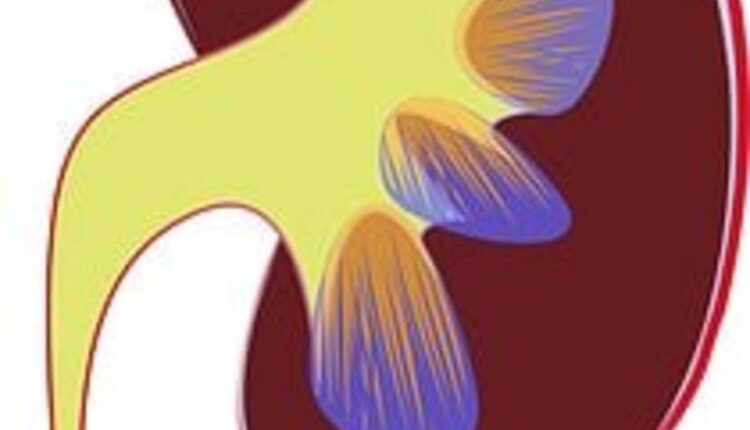Kidney Infection and Bladder Infection
If you have a kidney infection, your doctor may recommend antibiotic treatment. An antibiotic can reduce the infection’s symptoms and prevent future infections. However, if you have had a history of kidney infections, you are at risk for further complications. If you experience pain, consider using a heating pad or over-the-counter pain reliever. You may also be prescribed pain medication by your doctor.
Escherichia coli
Escherichia coli is a type of bacteria commonly found in the urinary tract. The presence of specific genes determines its virulence factors. A real-time PCR-based test can differentiate E. coli from other Gram-negative bacteria by targeting the uspA gene. The test also quantifies E. coli in urine samples from UTI patients.
In addition to kidney infection, this bacteria can cause bacterial pericarditis and Pseudoxanthomas kaohsiungensis bloodstream infections. Unfortunately, these infections are often misdiagnosed as tuberculosis pericarditis.
The infection is typically diagnosed and treated by a physician. The physician will determine the appropriate course of treatment based on the findings of the physical examination and the results of lab tests. For example, depending on the type of bacteria, the physician may begin the standard course of antibiotics. Then, depending on the results of lab tests, the antibiotics may need to be adjusted.
Various studies have shown that specific virulence factors of E. coli are essential in the progression of the infection in the kidney. For instance, hemolysin is associated with higher severity of the infection. Furthermore, different strains have different virulence factors.
Vesicoureteral reflux
Vesicoureteral reflux (VUR) is a condition that occurs when the urethra reverts urine to the kidneys. The condition causes kidney damage and can cause recurrent urinary tract infections. If left untreated, it can lead to kidney scarring and kidney disease. In rare cases, VUR can result in end-stage renal disease requiring dialysis or kidney transplants. Despite its common symptoms, it isn’t easy to diagnose in children.
Vesicoureteral reflux affects both the kidneys and bladder. When the urethra backflows urine to the kidney, it can cause the kidneys to swell. The condition can also affect the fetus, so treating it in the womb is essential.
Treatment options for vesicoureteral reflux and kidney infection vary depending on the severity of the reflux. In mild cases, reflux may go away independently, although it is better to seek medical treatment if fever or other complications are present. However, doctors may opt for surgery to fix the problem if the condition continues or worsens. First, the surgeon will insert a cystoscope through the urethra to examine the kidney. After this, a Deflux injection will be given to prevent urine flow back into the ureter.
Bladder infection
Bladder infection and kidney infection are common, but the symptoms are not the same. If you have symptoms of either infection, you should visit a doctor. Bladder infections are caused by bacteria from the environment, while problems with the kidneys cause kidney infections. Common bladder infection symptoms include frequent urination, painful urination, or cloudy or bloody urine. Both infections can also cause abdominal pain and cramping. A doctor can recommend treatment for the infection and monitor your condition.
Kidney infections are severe conditions. If left untreated, the infection can spread throughout the bloodstream, causing severe complications such as heart valve damage or chronic kidney failure. In addition, kidney infections can happen during pregnancy, which increases the chances of a low birth weight baby. In women, the urethra is shorter and closer to the vagina and anus, making it easier for bacteria to get into the kidneys.
A doctor will prescribe antibiotics and sometimes surgery. In severe cases, antibiotics may be given intravenously. Otherwise, over-the-counter medications can be used to relieve pain. If pain persists, a doctor may prescribe more potent pain relievers.
Treatment options
If you have been diagnosed with a kidney infection, the first step should be to seek medical advice. Your physician will probably recommend a course of antibiotics. If the infection persists or spreads, they may recommend a longer course of antibiotics. You should take the prescribed medications for the entire period recommended by your doctor. Leaving the infection untreated can lead to severe complications. It can lead to high blood pressure, kidney failure, and possibly even sepsis.
Several medical tests can diagnose a kidney infection, including urinalysis and x-rays. Urine samples can also be sent to a lab for a culture to determine the type of bacteria present. The antibiotic prescribed will depend on the type of bacteria found in the sample. CT scans are another standard procedure. These scans produce images of the organs and structures of the body. Finally, an urinary tract ultrasound can also diagnose a kidney infection.
Some people are at greater risk of getting a kidney infection. People with kidney problems may have a suppressed immune system. In addition, some people take steroids or chemotherapy, which weaken their immune system and can cause an infection. Those over 65 may also be at increased risk.



Comments are closed.